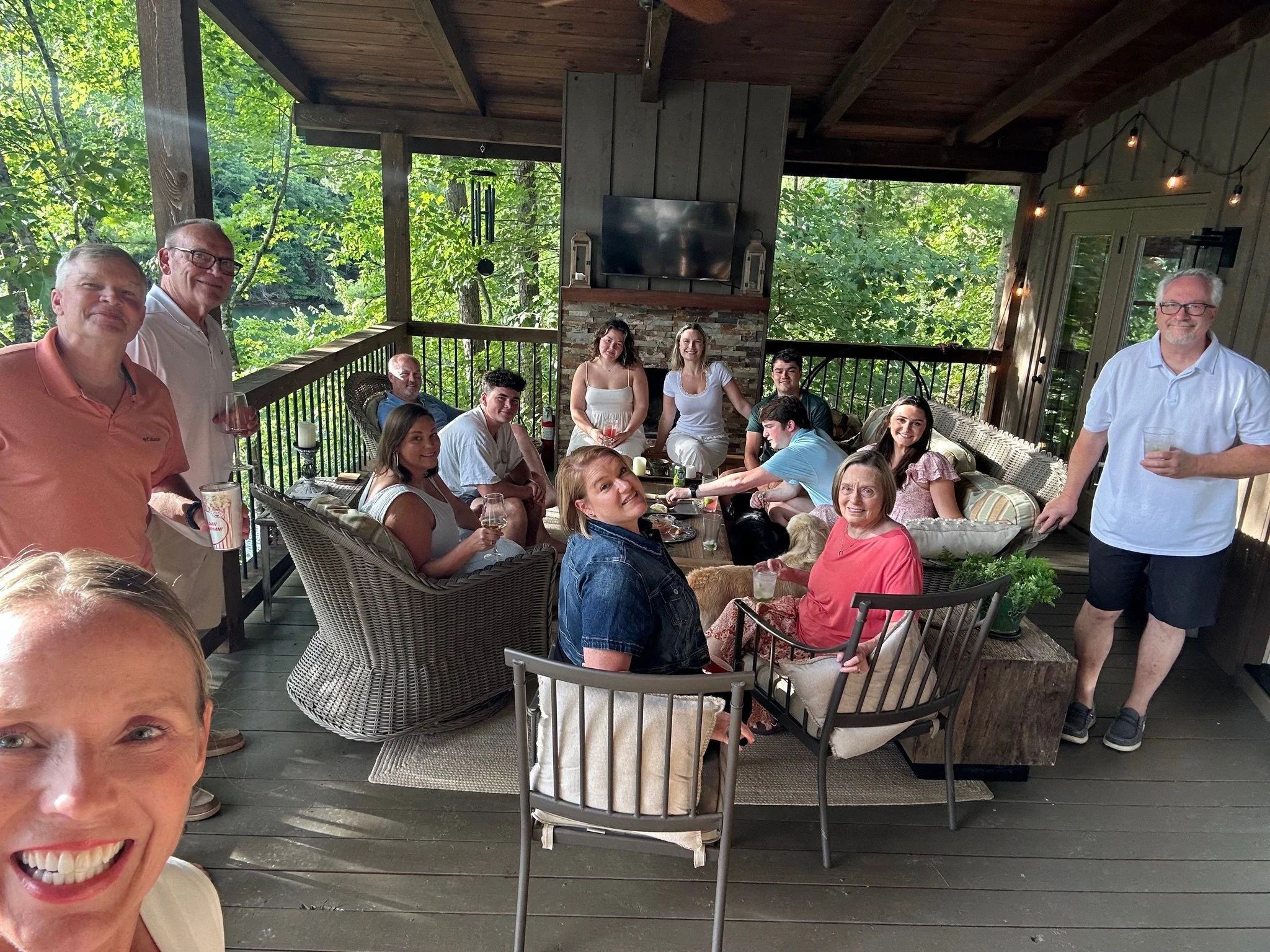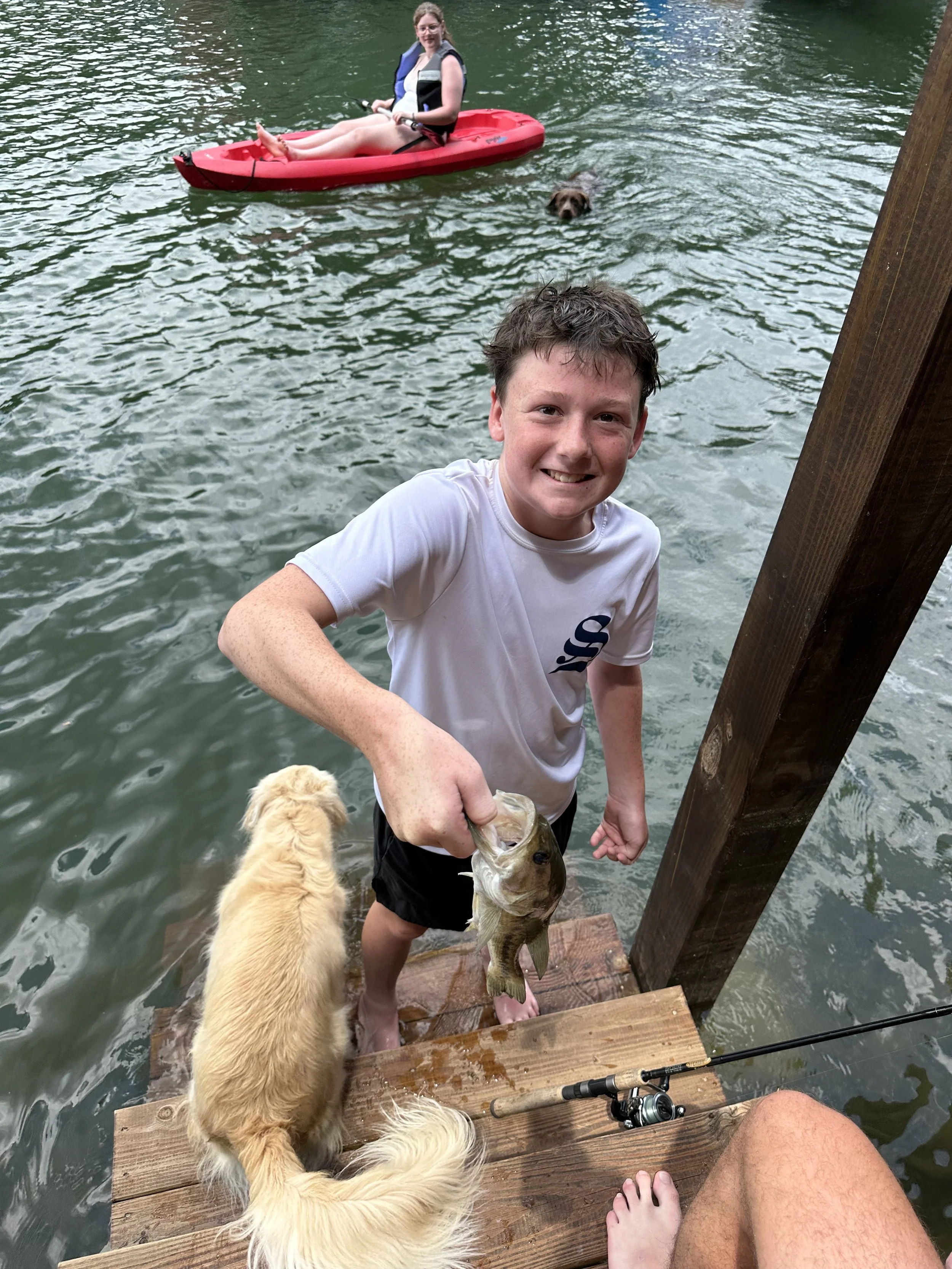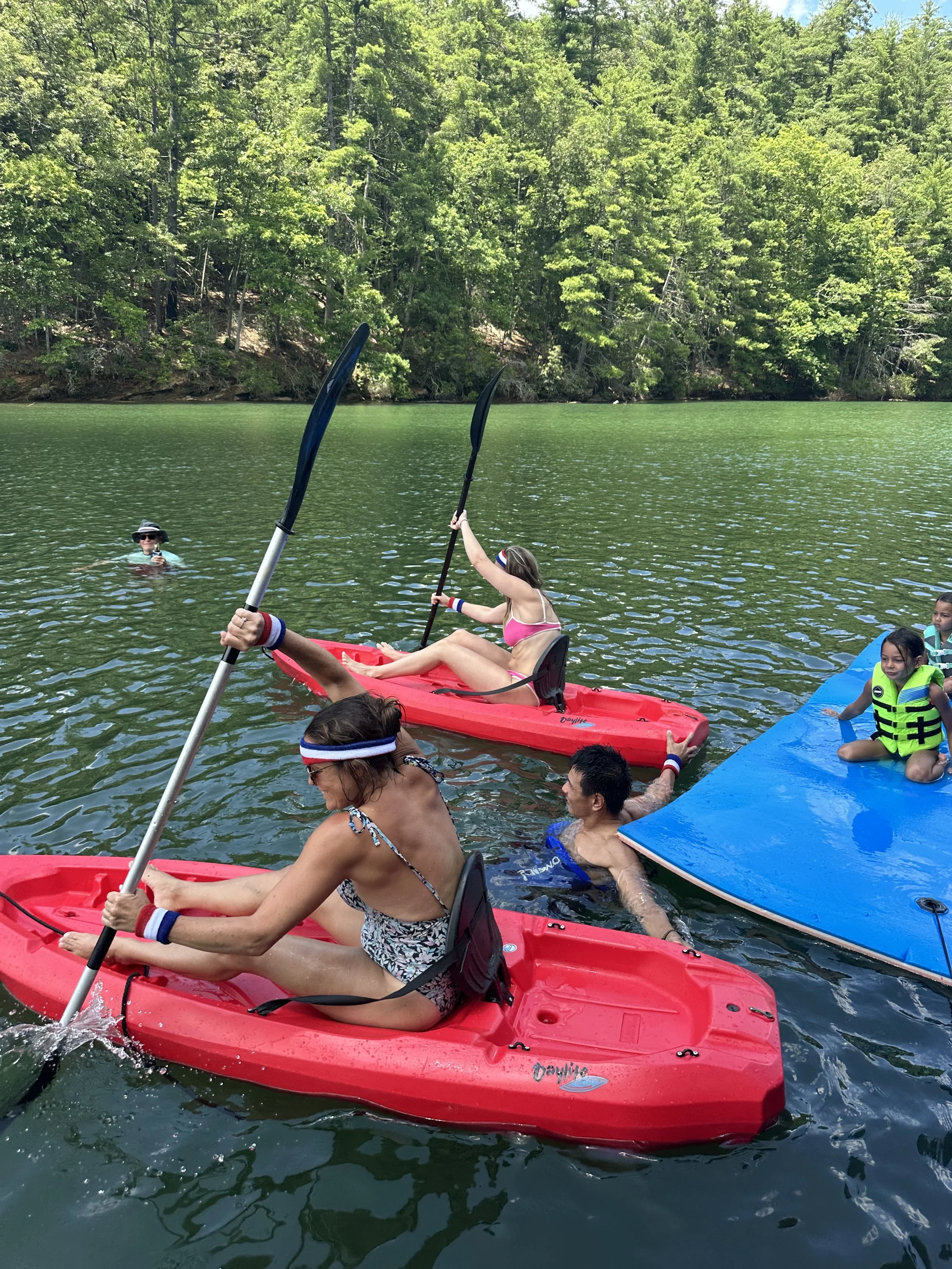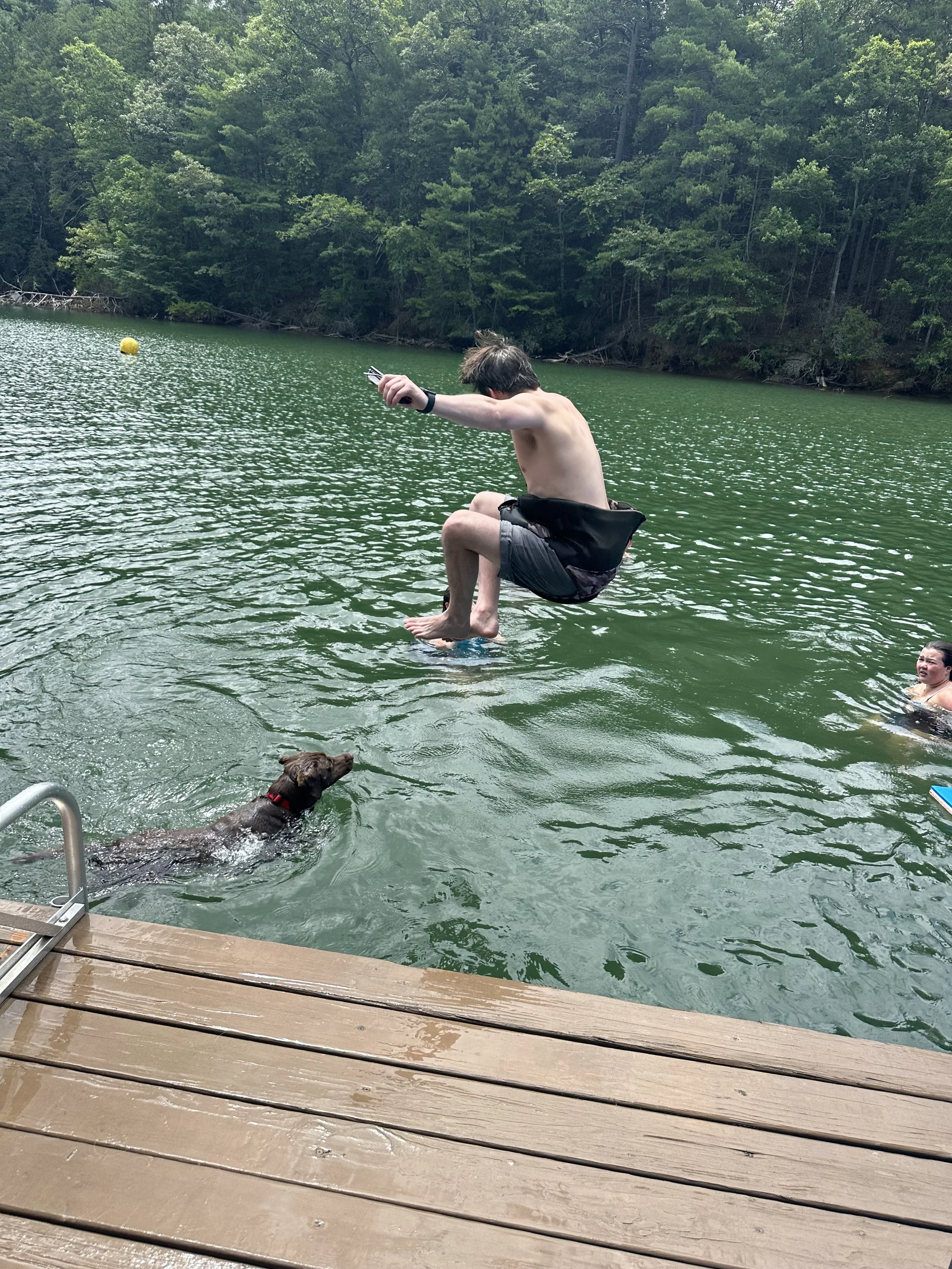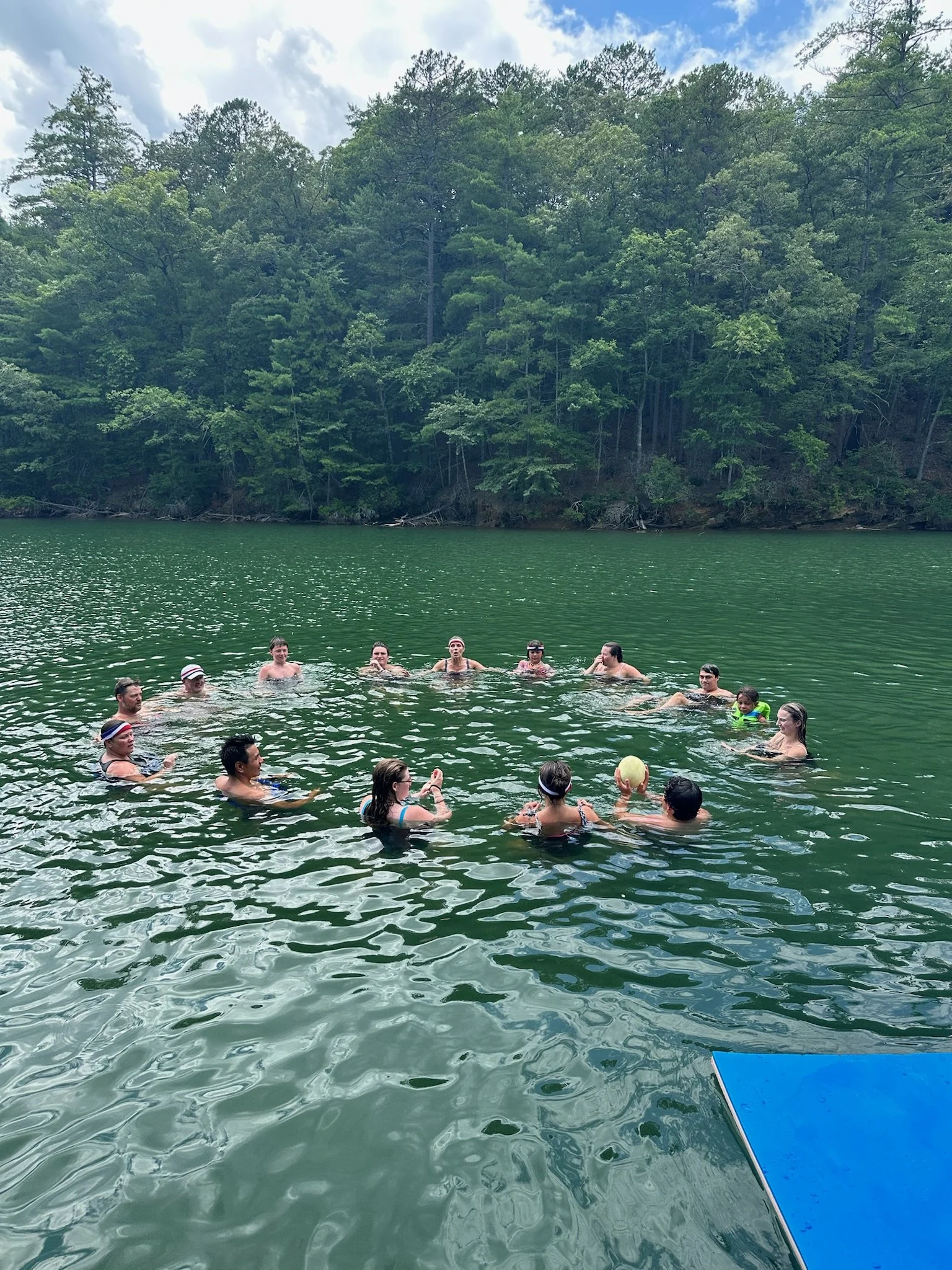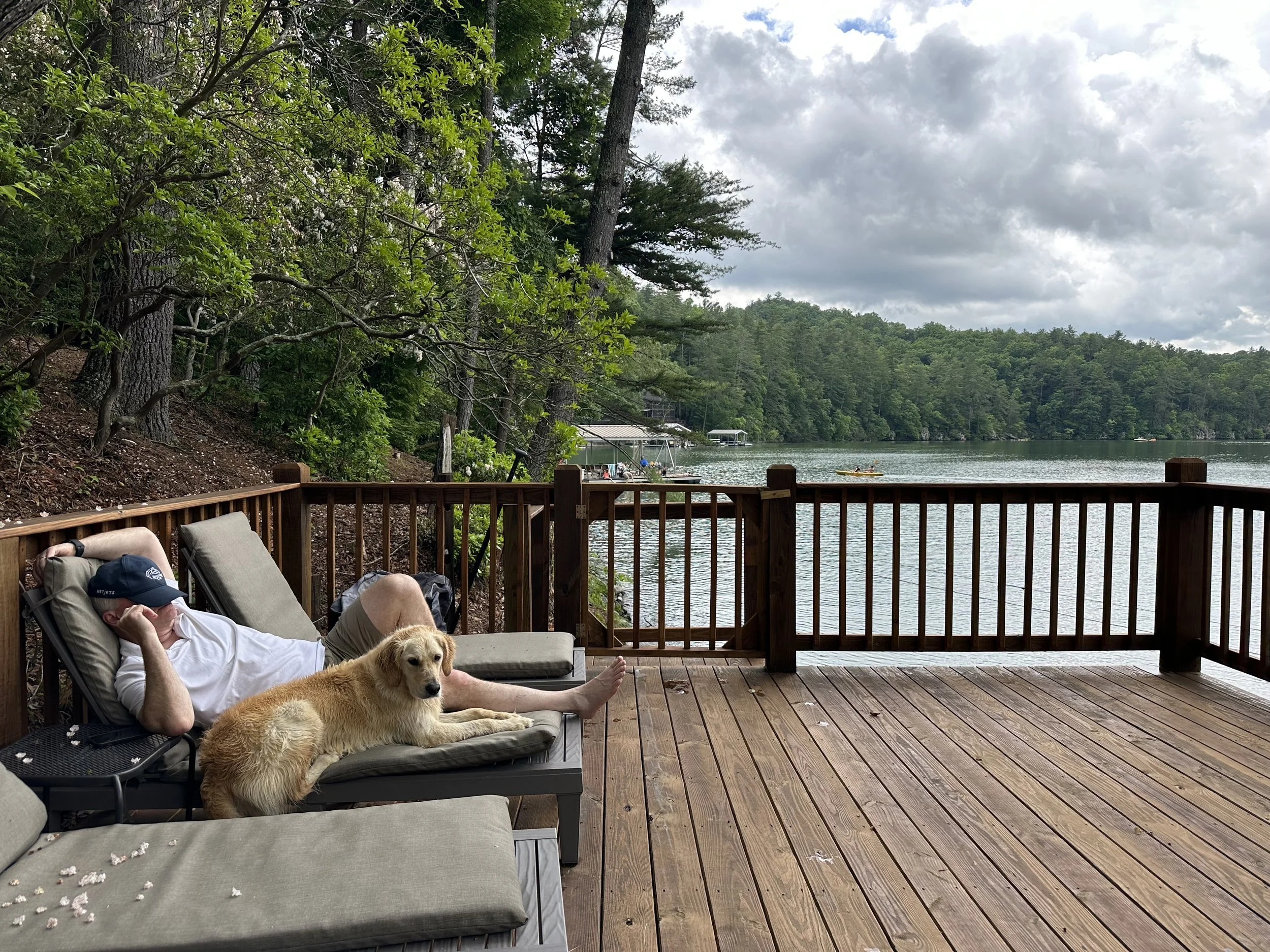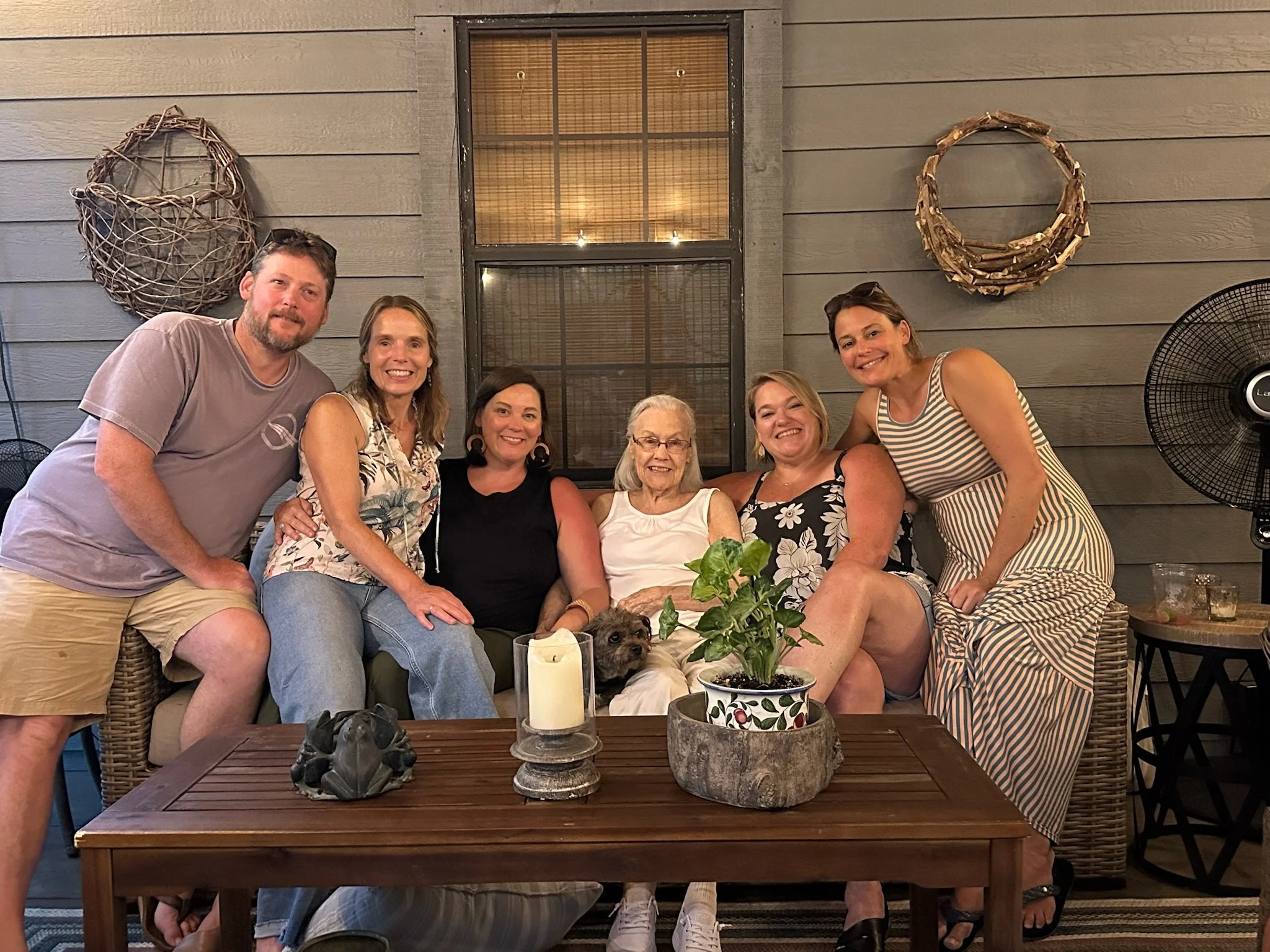Reunite with “Relative” Ease
Here's an interesting statistic: approximately 200,000 family reunions take place across the U.S. each year, with roughly 28% of families gathering annually and 70% of families getting together at least once every five years. It will not surprise you that most reunions take place between June and August (school's out) and on average include three to four generations.
Unfortunately, sources report a decline in family reunions due to the passing of older organizers, geographic scattering, and the reliance on social media and messaging apps, which are replacing some of the incentive to gather in person. Still, you have the Hubbards in Connecticut (whom I do not know but admire), who recently celebrated an impressive 170 consecutive annual reunions—believed to be one of the longest-running in the U.S. That is no small feat. High-five, Hubbards!
And thanks to Georgia's Lake Blue Ridge, where we are lucky to have a home just down the road from my mom, it's the perfect place for multigenerational gatherings, so we are among the 28% who converge each year. We haven’t achieved Hubbard status, but this summer's attendance peaked at 24 family members from eight states, ranging in ages five to 94 (not including dogs).
No one said family reunions were easy. One of the reasons families don't gather is that reunion logistics are complicated. Choosing a time when everyone can attend, coordinating travel, room, and board for dozens of people for three days or more—that's five houses and 13 group meals for our clan. Pulling it off, especially every year, is like an Act of Congress.
But we gather because it's essential. In a world of superficial digital "connections," remote work environments, and an epidemic of increased loneliness, strong family ties tend to fill the isolation cracks, reminding us that we don't live on Love Island in Dawg Nation and we belong to something more genuine and lasting than the 24-hour news cycle.
Family reunions come in all shapes and sizes. Ours happens to be extremely ACTIVE. Every summer for over a decade, I have served as a reunion coordinator and co-director of Basecamp for what we call Family Week. As such, historically, I tend to fall apart between days three and four due to exhaustion and overwhelm. But for reasons I explain below, even the lightning storm that fried our Starlink router and left us without WIFI in a house full of Gen Zs didn't steer me (completely) off the rails.
It has taken a while to find our reunion Zen, but here are three tips that can help everyone, regardless of size and speed, reunite with relative ease.
Adopt a Reunion Mindset
Family WEEK is not family VACATION. One of my husband's many mantras is, "It's all about the brain." Yes, you are taking precious PTO, and typically that means warm sand and calm ocean waves with someone you don't have to talk to handing you a margarita that you didn't have to climb forty-five steps to achieve on your own. But if you head into Family Week with any notion of "chill," then you will be level-five disappointed. Get over it. There will be no chilling at Family Week, so the sooner you channel your inner Clark Griswold, the happier you will be.
Instead, we engage. We make, eat, and clean two meals a day, then we hike, bike, float, boat, fish, swim, paddle, tube, ski, swing, and game—every single day. If it rains, we don't nap or watch movies; we rejoice in the opportunity to play Mexican Train (dominoes) while singing along to Christopher Cross. It is crucial, especially for the introverted participants, to accept that there will be almost constant interaction, but for taking a kayak down the creek or a solo jet ski ride (acceptable outlets) or a whole night's sleep (naps are deeply frowned upon). But don't sleep too late, or you may miss out on the morning hike or dock yoga, followed by buttermilk pancakes or sourdough biscuits and sausage. We all know the latter is what gets everyone moving.
Assign Meal Teams
Some clean kitchens and some "prefer not to get in the way." In a world without a plan, midweek, the chronic cleaner may start picking fights and throwing pans. No longer! Instead, a team is responsible for planning, executing, and cleaning up the entire day's meals. How you assign the days and teams is up to you: by house, family, gender, birthdates. Our teams are multigenerational, which is a lot of fun. Uncle Gene directs the boy team with a pre-game huddle and handwritten instructions like Hoosiers meets The Bear. We girls drink Rose and collaborate more loosely, which is why the next day, I'll find the mushrooms I forgot to sauté. Regardless, when your team day is over, you are Scott-free to lounge and even, momentarily, chill.
A couple of tips within the tip:
Keep meals simple. Protein, carb, green. For example, fish tacos and burgers are delicious but not the best picks if you don’t like slicing, dicing, and washing lots of extra bowls.
Use your leftovers wisely. Anything is good inside a folded tortilla plopped on the dock grill for lunch.
How do you keep from eating the same thing over and over? Create a shared note where you log your team’s day and picks. Next, manage all the chicken (chicken kabobs, lemon chicken, fried chicken, chicken quesadillas, and chicken salad. So much chicken!) by moving meals around. The best thing about the shared note is the dramatic reduction of “What are we having for lunch?” on repeat. Now we say, “VISIT THE NOTE.”
Create functional, organized spaces.
Our lake dock consists of two single slips, which we welded together. One has a top deck with lounge chairs and a hammock, and the other has a low-slope metal roof that does a great job sheltering our pontoon boat year-round from the weather. My daughter struggles with the space because it "lacks Feng Shui," which is a nice way of saying it's tacky. It's form following function, but I love it because it's like a small house with lots of rooms and tidy cubbyholes for everything the masses need. We may not have a fancy dock, but we do have a dock box, hanging hooks, a shoe shelf, a tote yard, a boat yard, a float yard, a garbage bin, and a paddle pen. For years, these increasingly well-planned nooks have kept us from tripping all over Family Week.
We are fortunate to have a growing family, so this year, we made a capital investment in Family Week by adding a small, covered pavilion we call the Redneck Yacht Club Bar and Grill. It's just a gangway away from the floating dock action, featuring a grill for hot dogs and stairs leading down to the lake for the hairy, hot dogs.
Why would we invest in more space over a fancier dock that has better Feng Shui? Here’s the best analogy I can muster: The first Kentucky Derby had 10,000 fans in attendance. One hundred fifty-one years later, Churchill Downs, for one day a year, mind you, has space for 165,000 people. I'm not suggesting you spend a lot of money building more space, but the Churchill example is apt in a metaphorical sense. They invest in expansion because that one horse racing weekend, the Kentucky Oaks and Derby, supports the entire organization for the rest of the year.
"Build it and they will come" is a manifestation that works, and family reunions are a commitment to that same “raving fan” attraction and retention.
The "spreading out of families" is real. Our transnational Family Week group represents eight different states, excluding colleges (which would add two more). Yes, we have the Fam Jam and True Pride text threads, which feature funny memes and happy birthday cake emojis. However, physical contact only occurs a couple of times a year and is limited to smaller, more intimate groups. Family reunions take the following up a big notch:
Strengthen bonds by reconnecting geographically distant relatives and bridging generations. Getting together helps us understand each other.
Preserve family history through stories and traditions, ensuring they aren't lost forever.
Build a sense of belonging. Everyone is part of a larger circle of care.
Celebrate milestones like anniversaries, graduations, or new additions to the family.
Create lasting memories with fun activities and moments that become family lore.
Pass on traditions and gives younger generations a living example of family values.
Family Week is not a vacation, but rather a time for attending, planning, and playing the World Cup of Quality Time. It's hard work that requires dedication, core strength, and a solid organizational structure. Still, it's worth it because after a year or more of inevitable personal change, we get to know each other again and genuinely. We reunite in a way that closes the distance, no matter how far, reminding us that we are part of something special and never really alone.

